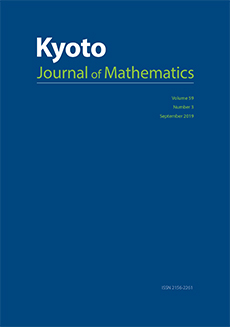Abstract
We give a global, intrinsic, and coordinate-free quantization formalism for Gromov–Witten invariants and their B-model counterparts, which simultaneously generalizes the quantization formalisms described by Witten, Givental, and Aganagic–Bouchard–Klemm. Descendant potentials live in a Fock sheaf, consisting of local functions on Givental’s Lagrangian cone that satisfy the -jet condition of Eguchi–Xiong; they also satisfy a certain anomaly equation, which generalizes the holomorphic anomaly equation of Bershadsky–Cecotti–Ooguri–Vafa. We interpret Givental’s formula for the higher-genus potentials associated to a semisimple Frobenius manifold in this setting, showing that, in the semisimple case, there is a canonical global section of the Fock sheaf. This canonical section automatically has certain modularity properties. When is a variety with semisimple quantum cohomology, a theorem of Teleman implies that the canonical section coincides with the geometric descendant potential defined by Gromov–Witten invariants of . We use our formalism to prove a higher-genus version of Ruan’s crepant transformation conjecture for compact toric orbifolds. When combined with our earlier joint work with Jiang, this shows that the total descendant potential for a compact toric orbifold is a modular function for a certain group of autoequivalences of the derived category of .
Citation
Tom Coates. Hiroshi Iritani. "A Fock sheaf for Givental quantization." Kyoto J. Math. 58 (4) 695 - 864, December 2018. https://doi.org/10.1215/21562261-2017-0036
Information





